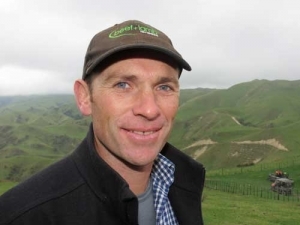The Trans Pacific Partnership will eliminate over time most of the tariffs on New Zealand's red meat sector, says Beef + Lamb chairman James Parsons.
The Trans Pacific Partnership deal is critical for New Zealand sheep and beef farmers and meat exporters, keeping us competitive in key markets, says Parsons.
The New Zealand sheep and beef sector exports close to 90% of its production totaling $7.4 billion, on which we paid $323 million of tariffs in 2014. Nearly one-third of those total exports go to TPP member countries, with a significant proportion of those tariffs paid in Japan ($77 million) - where applied tariffs on our beef exports are 38.5%.
The TPP agreement will eliminate, over time, the vast majority of tariff costs on New Zealand red meat exports to TPP member countries. Based on 2014 exports, this would be a reduction in tariffs paid of around NZ$72 million which ensures that New Zealand red meat products will remain competitive in TPP markets.
"The TPP deal also includes ways to address complex non-tariff barriers, which will prove useful in terms of opening markets and ensuring that they stay open", says MIA chairman Bill Falconer.
The TPP is expected to enter into force within two years, once all member countries have completed their legislatives processes.
B+LNZ and MIA work together to improve access for sheep and beef products to overseas markets, including by providing in-depth analysis to support the government's trade negotiation efforts.











